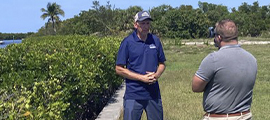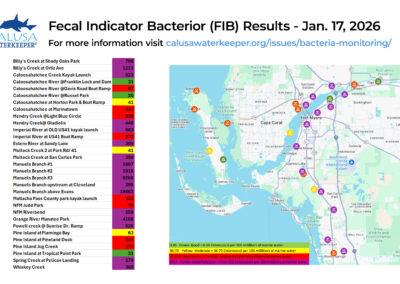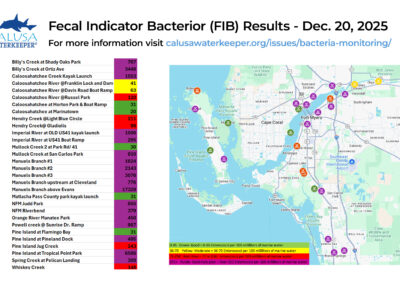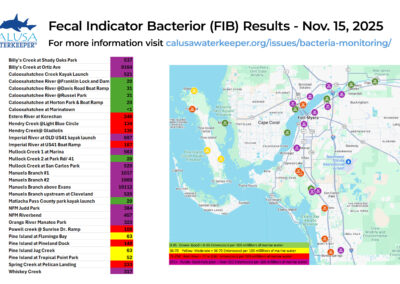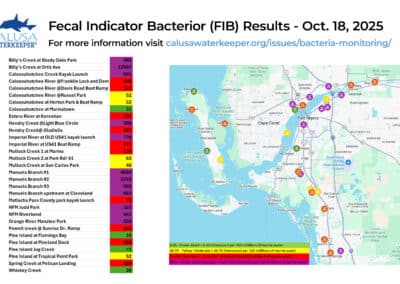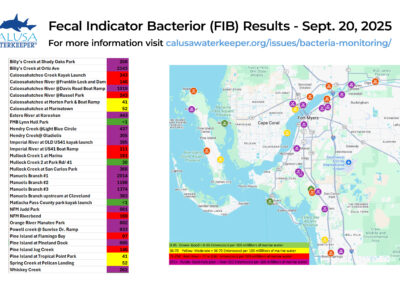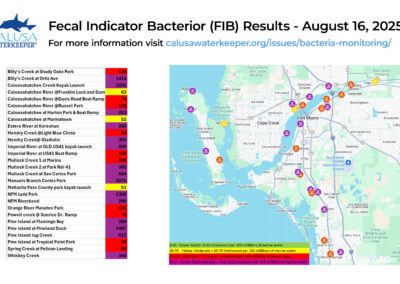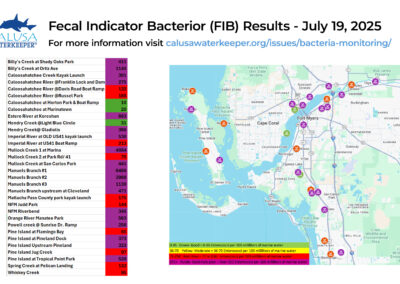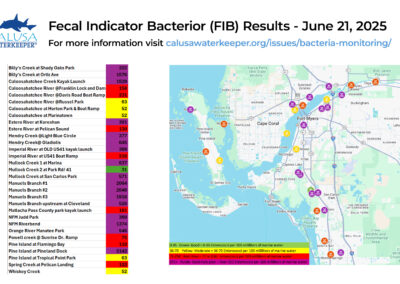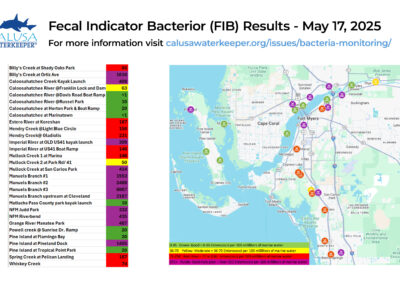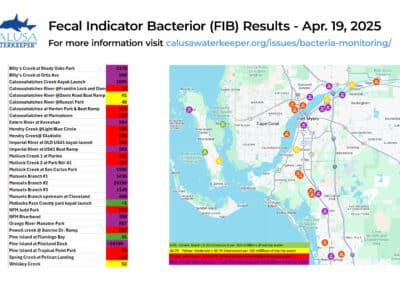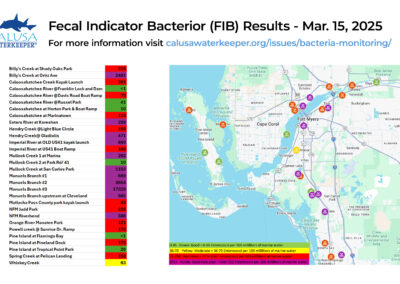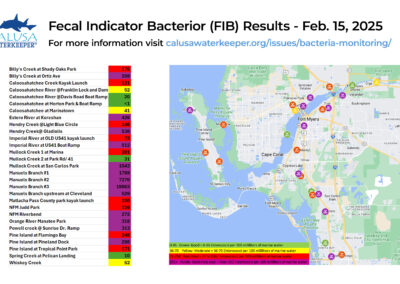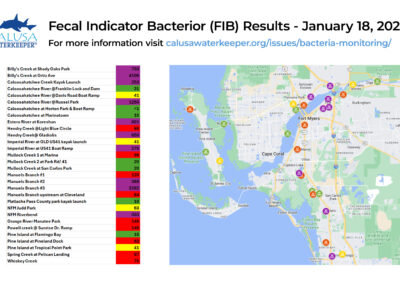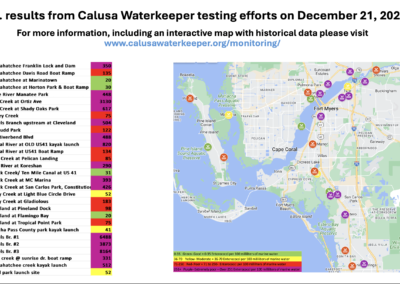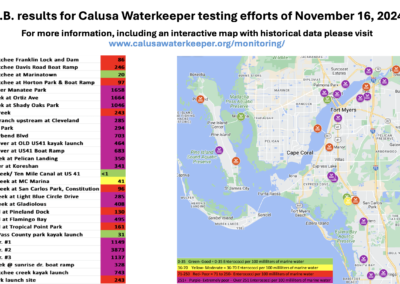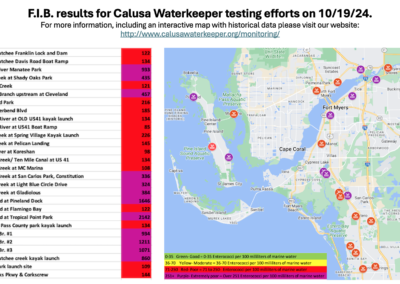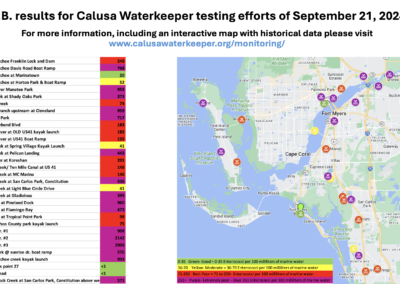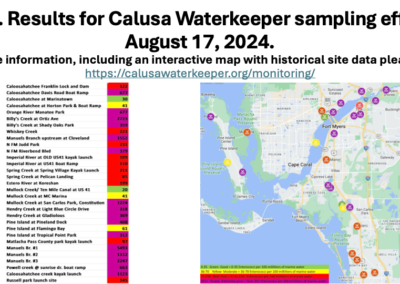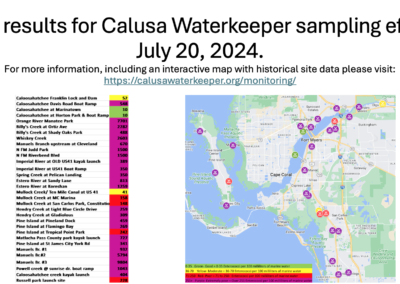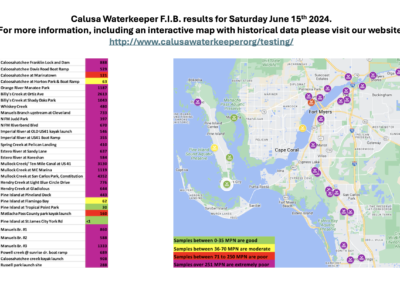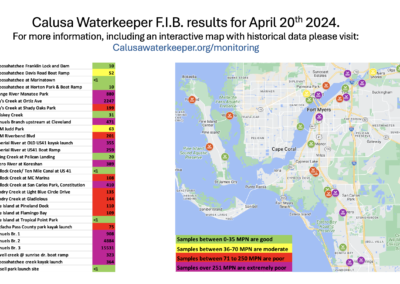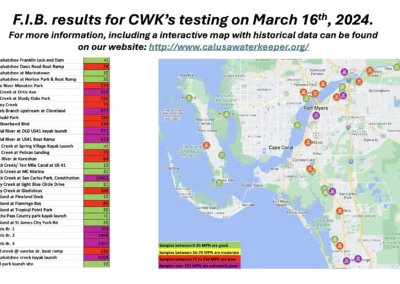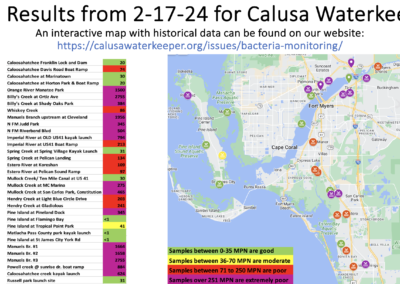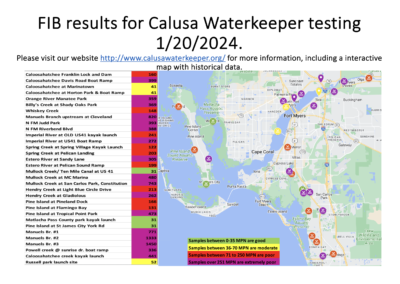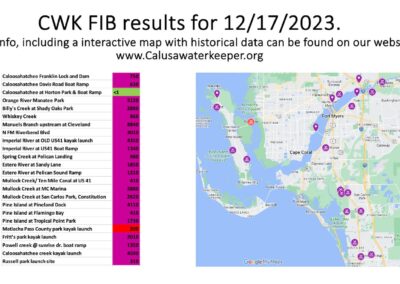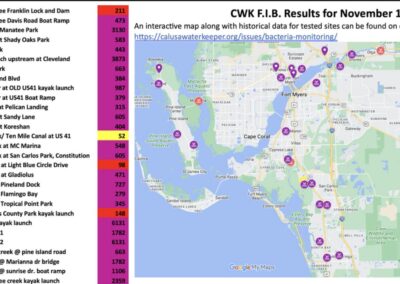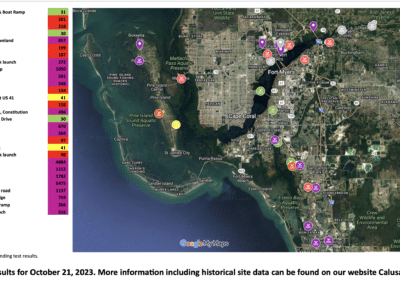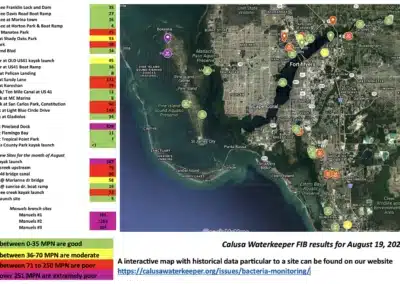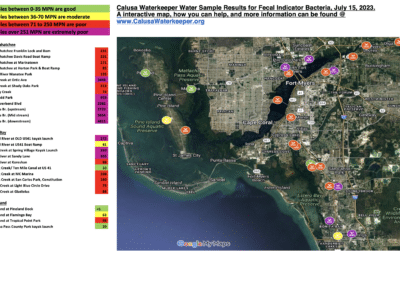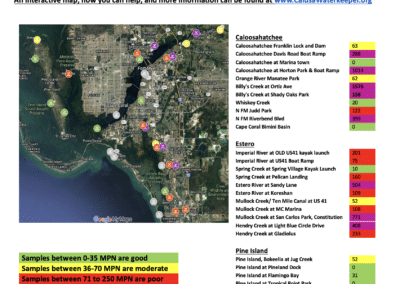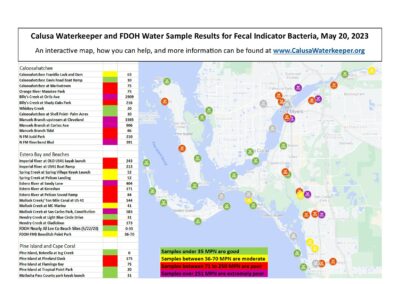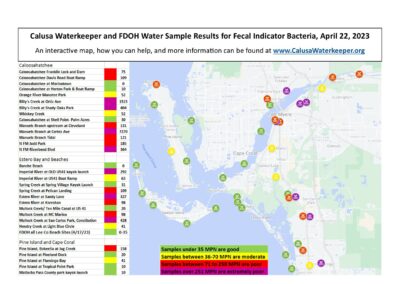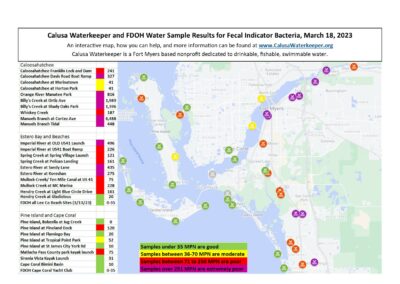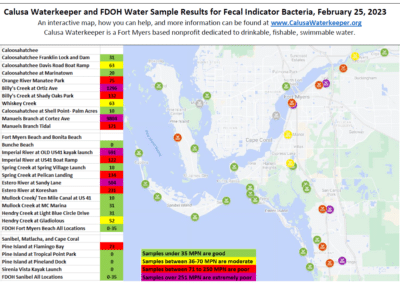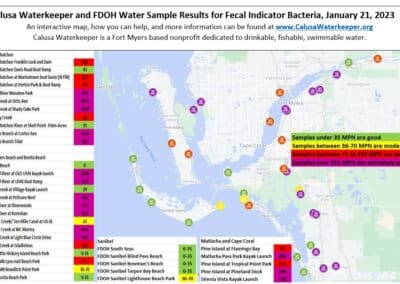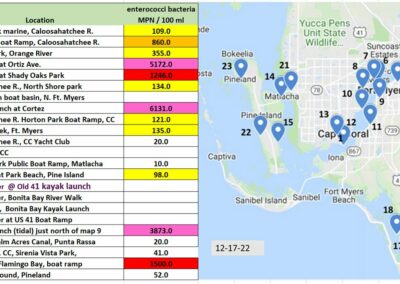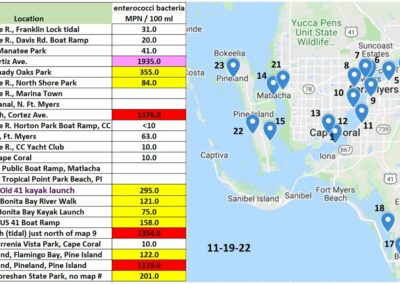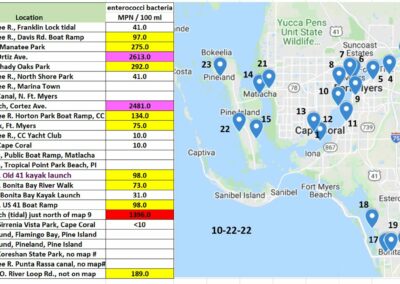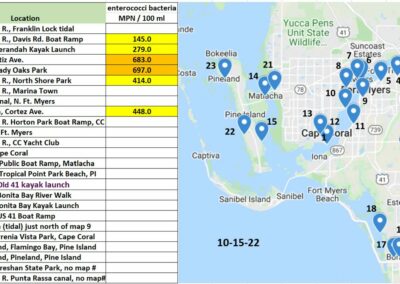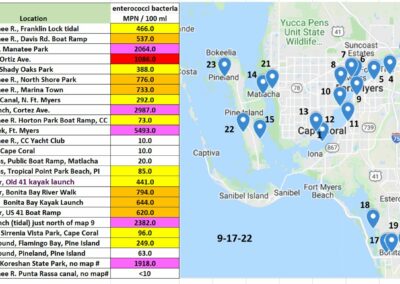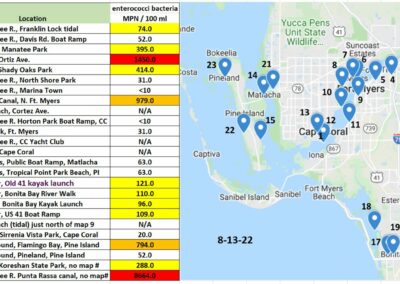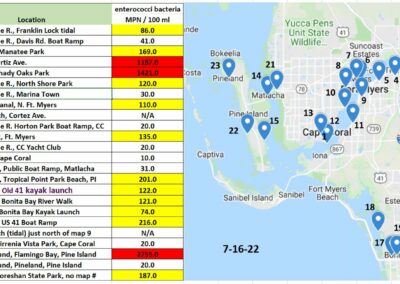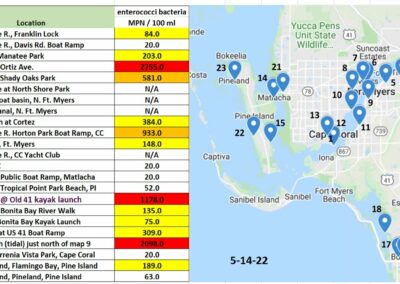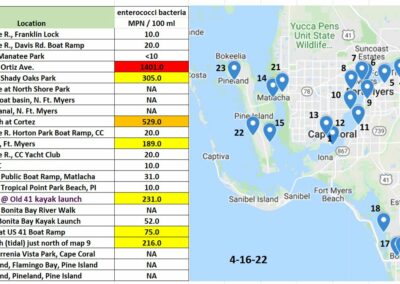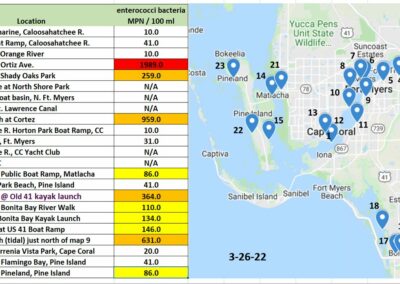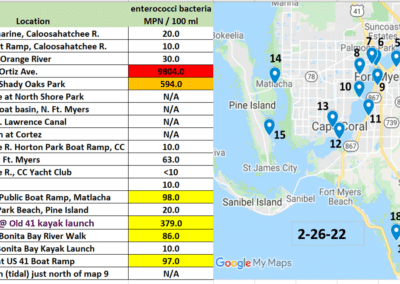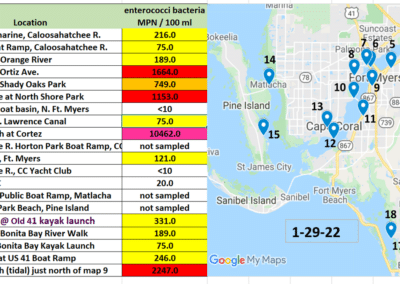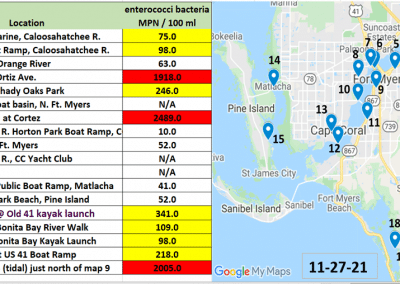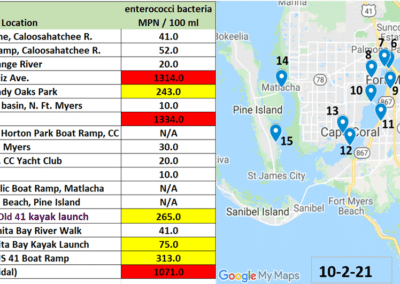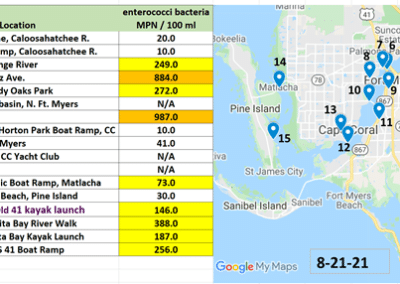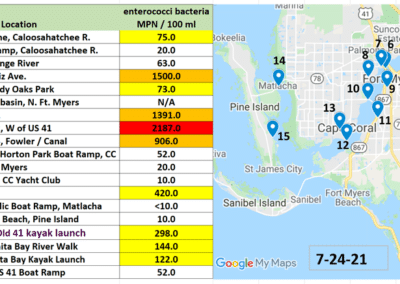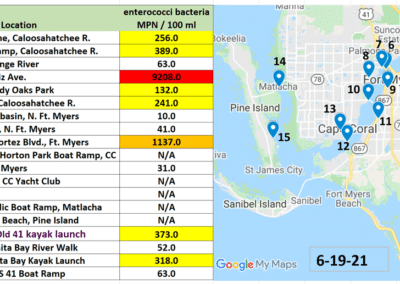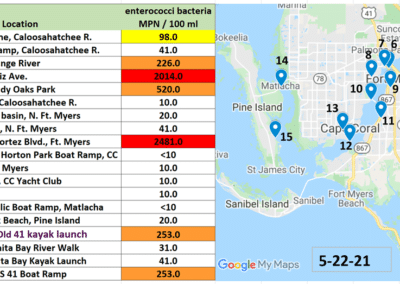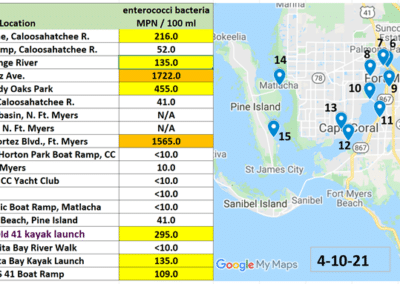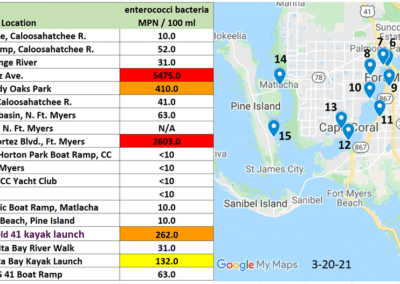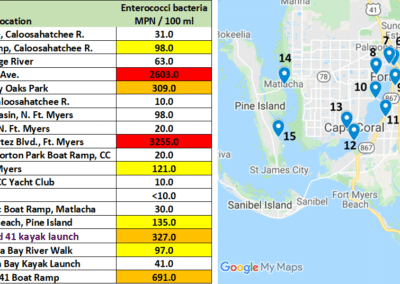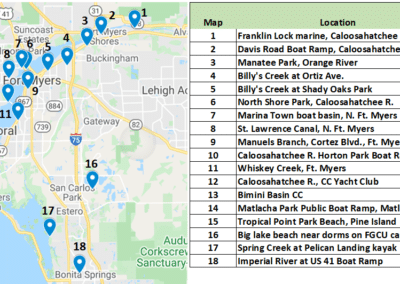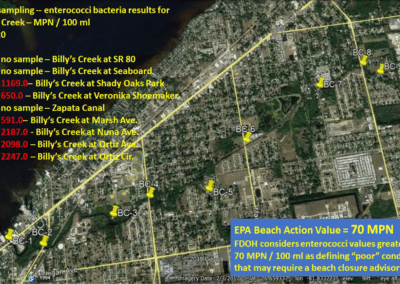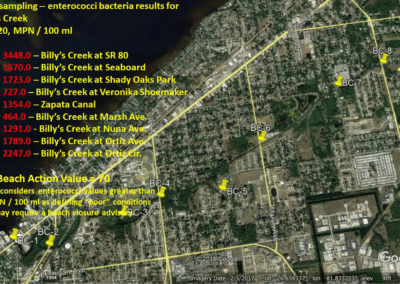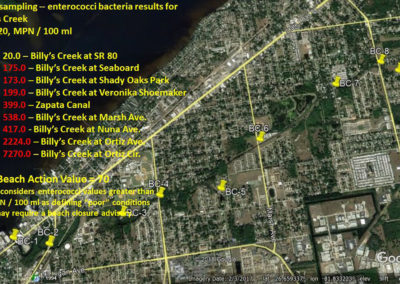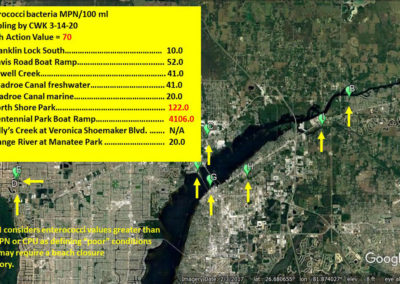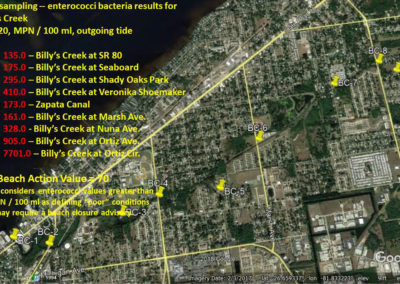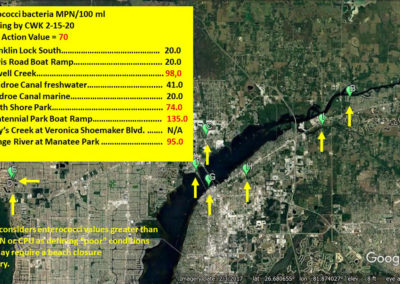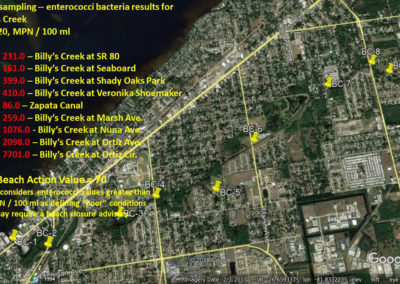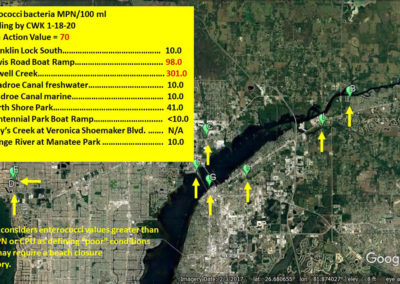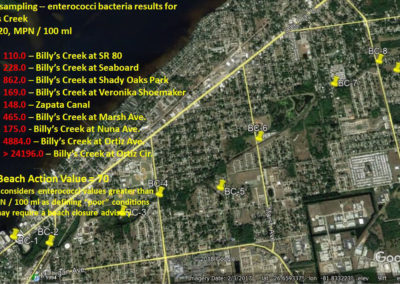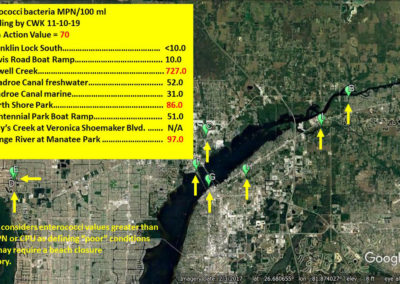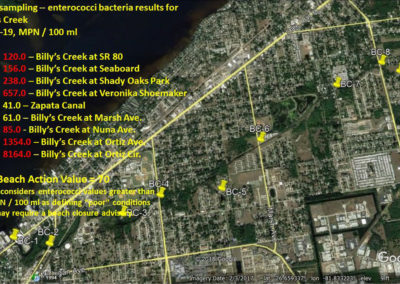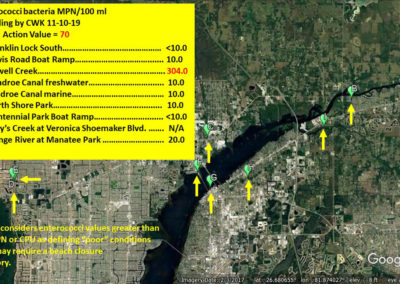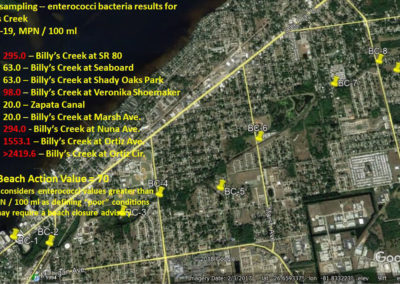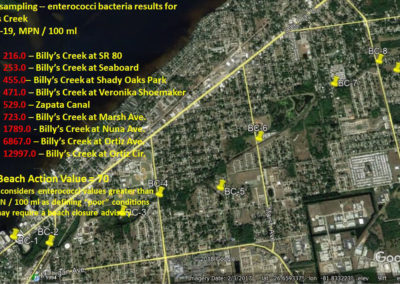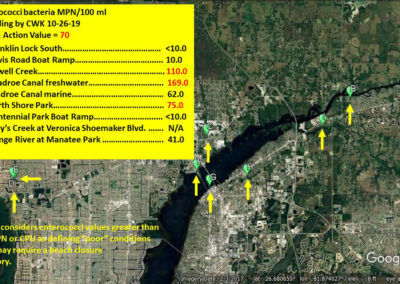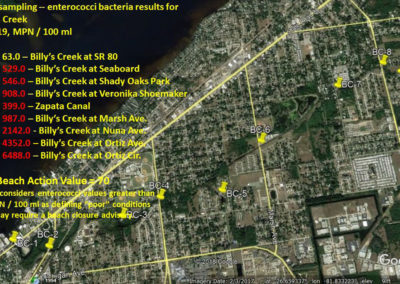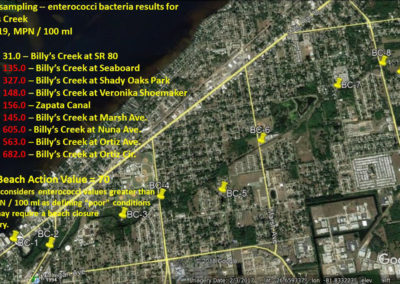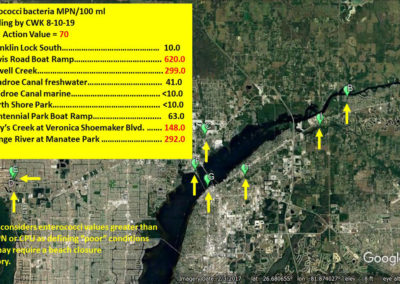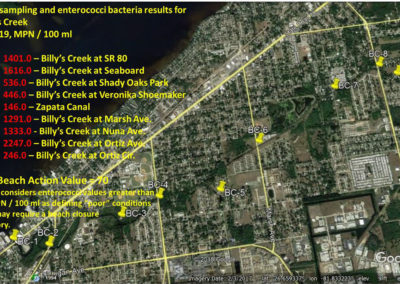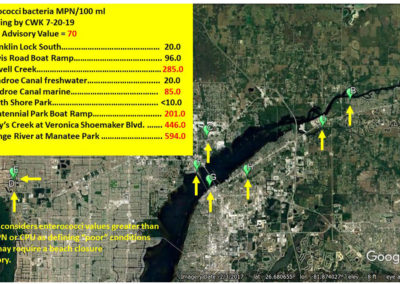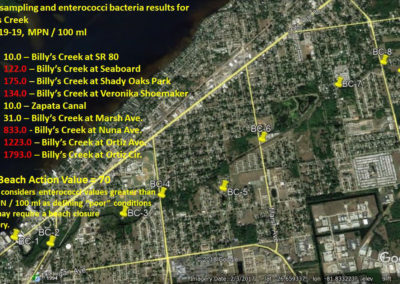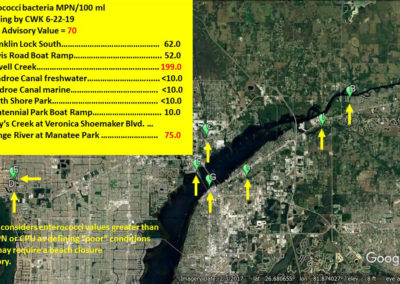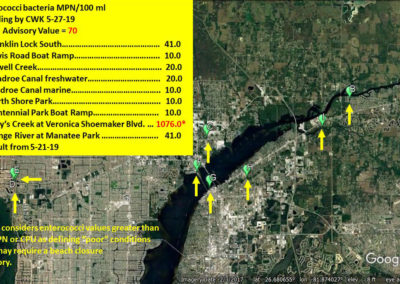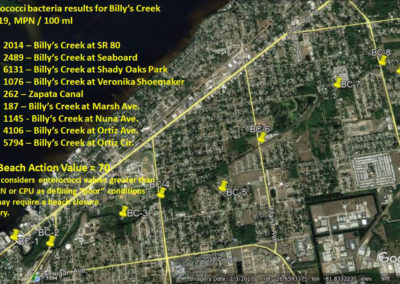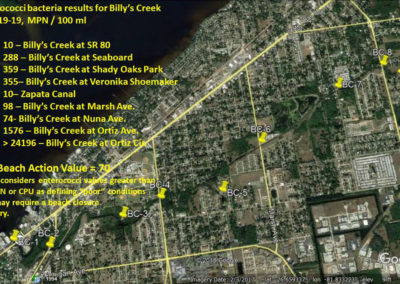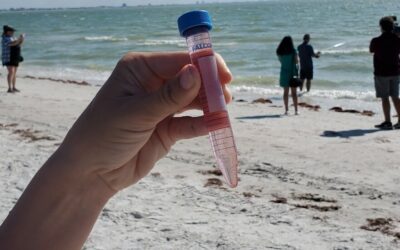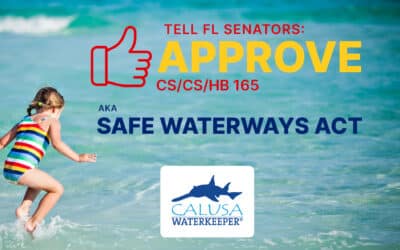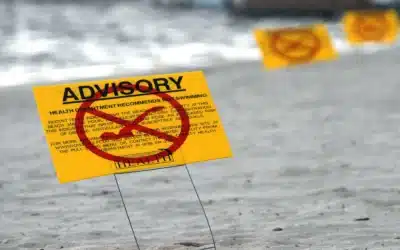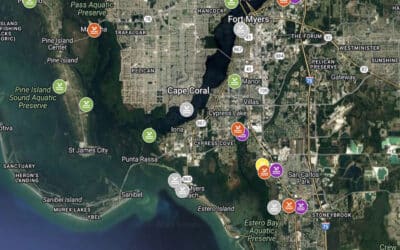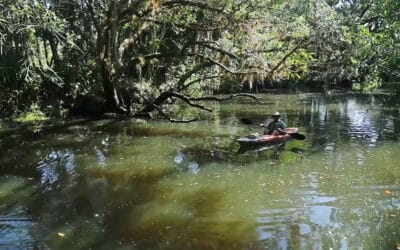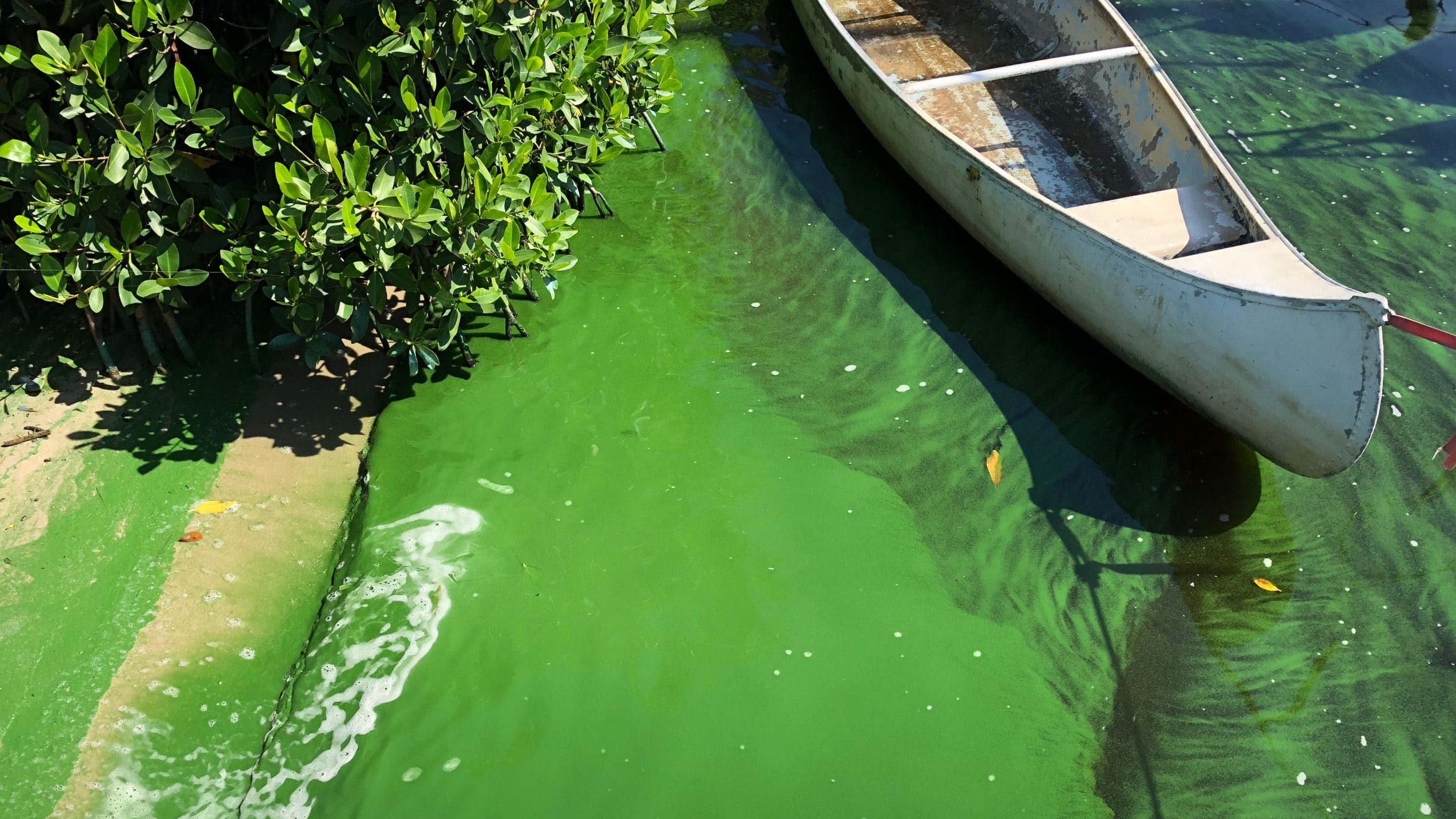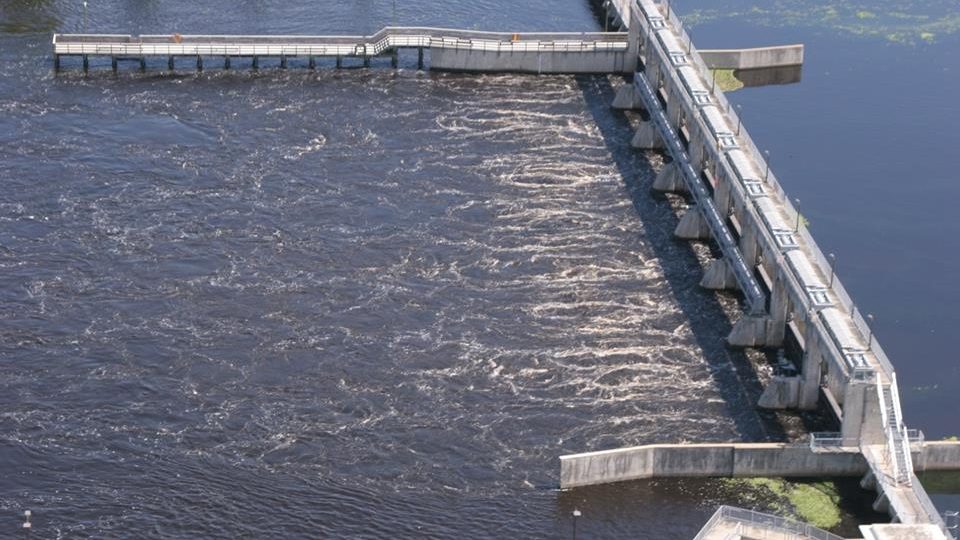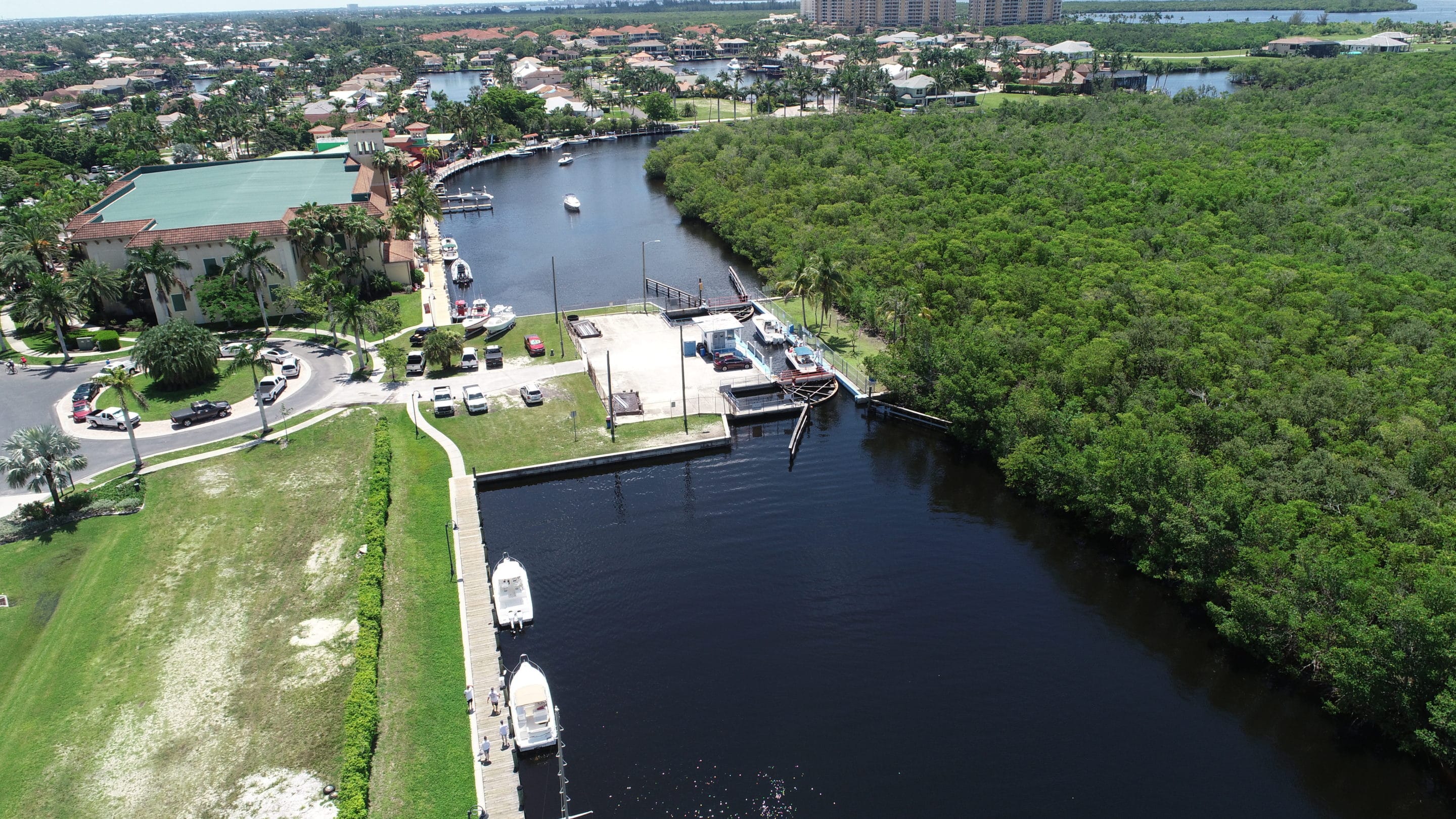Issue:
Bacteria Monitoring
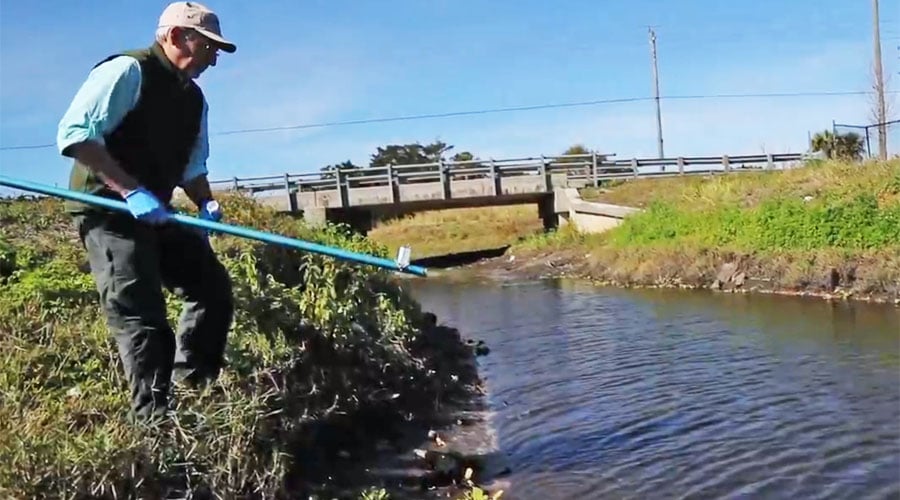
Fecal Indicator Bacteria (FIB)
Bacteria contamination plaguing Florida waterways has arguably reached a crisis point. For example, Billy’s Creek and Manuel’s Branch, tributaries flowing into the Caloosahatchee near downtown Fort Myers, have long been a hot spot for Enterococci bacteria. Enterococcus is used as an indicator of fecal contamination which can carry disease-spreading bacteria, viruses and parasites.
Independent testing of several Lee County waterways is routinely performed by Calusa Waterkeeper staff and volunteer rangers. Test results are determined in our independent lab and at Florida Gulf Coast University (FGCU) depending on the number of samples. Calusa Waterkeeper’s close watch of local creeks has compelled more monitoring by the Florida Department of Environmental Protection.
Enterococci bacteria can cause gastrointestinal illness, infections and rashes. Fecal indicator bacteria tests high in several Southwest Florida creeks both in the wet and dry season, but is commonly driven by stormwater runoff which carries bacteria into area waterways.
Updates & Action
Fecal Indicator Bacteria (FIB) Sampling
The data in this interactive map includes the latest Calusa Waterkeeper test sites. Click on a site to get more information and note the last date of sampling.
- It should be noted that we are not measuring or observing fecal matter in the water. These tests measure for fecal indicator bacteria, specifically enterococci.
- Bacteria sampling results show occurrences of serious contamination, especially in the upper reaches of Lee County tributaries.
- Contamination values have routinely been found at many times the EPA Beach Action Value of 70 MPN.
- Even with these high levels of contamination, few if any warning signs are typically posted.
- Both Lee County and city officials are aware of this issue.
FIB Sampling Archives
(click images to enlarge view)
Related News Stories
Fecal Indicator Bacteria
Floridians face continuing risk of swimming in contaminated waters due to veto
Florida public health policy took a blow recently when Gov. Ron DeSantis vetoed legislation aimed at reducing public risk from beach waters and public bathing places contaminated with fecal bacteria.
Action Alert: Ask Governor to Approve the Safe Waterways Act
This important water quality and public health legislation could use your help getting over the finish line!
The Safe Waterways Act is Poised for a Senate Vote
The Safe Waterways Act of 2024 has received more bi-partisan co-sponsors, was guided through committees and is now poised for a special order vote by the full Senate.
High Fecal Bacteria at Lee County Beaches Trigger Warnings
Lee County’s health department warns residents to avoid the water at local beaches due to high fecal bacteria levels that could cause illness. Bowditch Point Park on Fort Myers Beach and Cape Coral’s Yacht Club beaches had unsafe levels of Enterococcus bacteria.
Calusa Waterkeeper Issues Area’s Bacteria Sampling Report for June
This month out of the 30 sites throughout the watershed tested by the Calusa Waterkeeper, 23% passed and 77% failed. The highest FIB count reported of 2,909 MPN at Manuel’s Branch will be discussed in a upcoming meeting.
Fecal Bacteria Counts High in Many Protected Rivers & Creeks in Lee County
Some tributaries flowing into the Caloosahatchee River and Estero Bay are polluted with fecal coliform bacteria, with counts going well above the criteria used to determine whether or not a beach is safe for swimming.
Make a Donation
Get Notified
Priority Issues
Harmful Algal Blooms
Cyanobacteria & Red Tide
Cyanobacteria (blue-green algae) and Karenia brevis (red tide) have been making major impacts on Southwest Florida.
Lake Okeechobee Discharges
Revise System Operating Manual
The Caloosahatchee River often suffers from too much freshwater in the wet season, and not enough freshwater in the dry season.
Cape Coral Spreader Canals
Nutrient & Sediment Loading
The City of Cape Coral is working to remove large storm-water barriers to make recreational boating more convenient.
Bacteria Monitoring
Fecal Bacteria
Calusa Waterkeeper has been at the forefront of monitoring this Fort Myers tributary for fecal bacteria indicators.

















